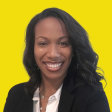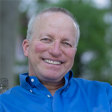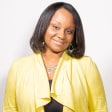Personal Development Speakers
You've got a lineup to fill and you want someone who doesn't just talk, but actually connects. Someone who can help your audience grow without sounding like a self-help cliché.
But how do you find the right personal development speakers when everyone claims to be one?
Maybe you're curating a virtual summit, planning a podcast season, or just want a meaningful voice for your next event.
You're probably wondering: what actually makes a personal development speaker worth listening to? What kind of topics do they cover, and how do you know they'll deliver?
This guide helps you figure that out. You'll get a clear sense of what personal development speakers really do, who they're best for, and why the right one can shift how your audience thinks about growth.
I've seen how the best speakers bring clarity to tough topics like confidence, mindset, and purpose-all without sounding rehearsed or preachy.
Check out these standout personal development speakers and book someone who actually fits your audience and your platform.
Top Personal Development Speakers List for 2026
Kimberly Crowe
If it's not fun, it's not worth doing
Alice Van Blokland
Empowering joy, unleashing potential—let's transform together!
Kaneshi Hart
Transforming first-time managers from chaos to confident leaders
Jennifer Maxwell
Professional Uplifter & Possibility Expert who turns DISC-driven insights into confidence and connection.
Jamil Massey
When life gets tough, I help people keep showing up!
Cath DeStefano
Empowering humans with essential people skills, one connection at a time!
Ken Sher
Empowering leaders to thrive through trust and authentic connection
Kareen Aristide
Human Behaviour Expert, Mental Health Specialist & Spiritual Director - Blending Personal Development & Mental Health for Holistic Growth
Miste Marie Anders Clemons
Empowering your career journey, one resume at a time
What Makes a Great Personal Development Speaker
What sets them apart? It's not just charisma, though that helps. It's clarity. A great speaker knows how to distill complex ideas into digestible, actionable insights. They're storytellers at heart, weaving personal experiences, client transformations, or even historical examples into their message. This makes their content relatable and sticky. You remember it because it felt like it was meant for you.
But here's the kicker: authenticity. Audiences today can sniff out a fake from a mile away. The best personal development speakers are real. They're not afraid to talk about failure, doubt, or fear. That vulnerability builds trust. And trust is what turns a good talk into a transformative one.
Finally, great speakers are learners. They evolve. They adapt their message to different audiences-whether they're speaking to a room of startup founders in Berlin or high school students in Nairobi. They listen as much as they speak. That's how they stay relevant.
So if you're looking to bring someone onto your stage or podcast, look beyond the flashy bio. Ask: Do they move people? Do they leave the audience changed? That's the mark of a great personal development speaker.
How to Select the Best Personal Development Speaker for Your Show
1. Define Your Audience and Goals.
- Who are you speaking to? Entrepreneurs? Parents? College students?
- What do you want them to walk away with-motivation, clarity, a new strategy?
- Tip: If your audience is early-stage founders, someone like Marie Forleo might resonate more than a high-level executive coach.
2. Browse Speaker Platforms Like Talks.co.
- Use platforms like Talks.co to filter speakers by topic, style, and availability.
- Check out their speaker pages-look for video clips, testimonials, and past event types.
- Tip: Don't just look at keynote clips. Watch interviews or panels to see how they handle dialogue.
3. Evaluate Their Message and Delivery Style.
- Are they more tactical or inspirational? Do they use storytelling or frameworks?
- Match their tone with your show's vibe. A casual podcast might not suit a super-polished TED-style speaker.
4. Review Their Engagement History.
- Have they spoken on similar shows or to similar audiences?
- Look at comments, shares, and reviews from past appearances.
- Tip: Reach out to past hosts for honest feedback.
5. Connect and Ask Questions.
- Use Talks.co to message them directly or request a discovery call.
- Ask how they tailor their message to different audiences.
- Tip: A great speaker will ask you questions too-that's a good sign they care about fit.
Selecting the best personal development speaker is part research, part intuition. When you find someone who aligns with your audience and message, the results can be powerful.
How to Book a Personal Development Speaker
1. Start with a Clear Brief.
- Define the event type, audience size, location (virtual or in-person), and desired outcomes.
- Example: 'We're hosting a virtual summit for remote team leaders focused on resilience and productivity.'
2. Search and Shortlist.
- Use speaker directories like Talks.co to find personal development speakers who match your theme.
- Filter by topic, availability, and speaking style. Save your top 3-5 picks.
3. Review Their Speaker Page.
- Look for video samples, past appearances, and audience feedback.
- Tip: If they've spoken on podcasts or summits similar to yours, they're likely a strong fit.
4. Reach Out for Availability and Fit.
- Use the platform's messaging feature or contact form to ask about availability.
- Share your brief and ask how they would tailor their talk to your audience.
5. Confirm Logistics and Fees.
- Discuss honorarium, travel (if applicable), tech requirements, and promotional expectations.
- Tip: Be upfront about budget. Many speakers offer flexible rates for virtual events or startups.
6. Finalize with a Contract.
- Include date, time, topic, deliverables (e.g., slides, promo video), and cancellation terms.
- Use a simple agreement template or ask if the speaker has one.
7. Promote and Prepare.
- Share speaker assets (bio, headshot, social links) with your team.
- Schedule a prep call to align on flow, timing, and audience engagement.
Booking a personal development speaker is easier when you use tools like Talks.co and approach it like a collaboration, not just a transaction. The clearer your communication, the smoother the experience.
Common Questions on Personal Development Speakers
What is a personal development speaker
These speakers are not just motivational cheerleaders. They're educators, coaches, and strategists rolled into one. Their goal is to guide people toward better versions of themselves-whether that's through building confidence, mastering time management, or overcoming fear.
Personal development speakers often specialize in specific niches. For example, Brendon Burchard focuses on high performance, while Lisa Nichols emphasizes self-worth and communication. Some are rooted in psychology, others in business, spirituality, or education. What unites them is their focus on personal transformation.
They typically speak at conferences, corporate trainings, virtual summits, or podcasts. Some also offer online courses, books, or coaching programs to deepen their impact. Their talks are usually a mix of storytelling, practical frameworks, and audience engagement.
In short, a personal development speaker is someone who helps people grow-intentionally, strategically, and sustainably-through the power of spoken word.
Why is a personal development speaker important
In today's world of constant noise and distraction, people crave guidance. Not just information, but insight. That's where personal development speakers come in. They distill years of research, experience, and reflection into messages that land. Whether it's helping a burned-out executive rediscover purpose or giving a high school student the confidence to speak up, their impact is deeply personal.
They also serve as cultural translators. Think about it: concepts like mindfulness, resilience, or emotional intelligence can feel abstract. A skilled speaker makes them tangible. They bridge the gap between theory and action. For example, when someone like Simon Sinek explains 'Start With Why' to a room full of marketers, it's not just a slogan-it becomes a strategy.
On a broader scale, personal development speakers contribute to healthier workplaces, more empathetic leadership, and communities that value growth. In corporate settings, they can reduce burnout and boost morale. In education, they can inspire students to take ownership of their learning.
So whether it's one person in a podcast audience or a thousand in a conference hall, the importance of a personal development speaker lies in their ability to spark transformation-one insight at a time.
What do personal development speakers do
First, they research and refine their message. Personal development speakers spend countless hours studying human behavior, psychology, leadership theory, and communication strategies. They read, interview experts, and test ideas through coaching or consulting. Their talks are the tip of an iceberg built on deep knowledge.
Second, they craft and deliver presentations that resonate. This includes writing scripts, designing slides, and rehearsing delivery. They tailor their message to different audiences-what works for a corporate retreat in Sydney might not land the same way in a youth leadership summit in Nairobi.
Third, they engage with audiences before, during, and after events. Great speakers don't just show up and talk. They ask questions, gather context, and follow up with resources or coaching. Many offer free downloads, email courses, or community access to keep the momentum going.
Fourth, they build platforms. Most personal development speakers today are also content creators. They host podcasts, write books, run online programs, and grow social media communities. This helps them reach people beyond the stage.
Finally, they collaborate with event organizers, hosts, and other experts. Whether it's working with a summit host on Talks.co or co-creating a workshop with a corporate client, they're team players who understand the bigger picture.
In essence, personal development speakers are educators, communicators, and community builders. Their job is to help people grow-and they do it through a mix of insight, empathy, and strategy.
How to become a personal development speaker
1. Define Your Core Message.
- What transformation are you helping people achieve? Whether it's mindset shifts, productivity hacks, or emotional intelligence, clarity is key.
- Tip: Focus on a niche. For example, are you helping young professionals build confidence or guiding entrepreneurs through burnout?
2. Build Your Signature Talk.
- Create a 20- to 45-minute talk that delivers real value. Include personal insights, actionable takeaways, and a clear structure (problem, solution, result).
- Practice it in front of small groups, record yourself, and refine based on feedback.
3. Establish Your Online Presence.
- Set up a speaker page on platforms like Talks.co. Include your bio, talk topics, testimonials, and a booking form.
- Use social media to share snippets of your talks, quotes, and behind-the-scenes content.
4. Start Small, Then Scale.
- Reach out to local meetups, schools, or virtual summits. These are great places to test your talk and build your portfolio.
- Use Talks.co to connect with event hosts looking for speakers in your niche.
5. Collect Testimonials and Footage.
- Every time you speak, ask for a testimonial and try to get video footage. This builds credibility and helps you land bigger gigs.
6. Network Strategically.
- Join speaker communities, attend industry events, and collaborate with other experts. Relationships open doors.
7. Keep Learning.
- Study top speakers. Watch TED Talks, read books on public speaking, and get coaching if needed.
Consistency and clarity are your best friends. The more you speak, the better you get, and the more opportunities will come your way.
What do you need to be a personal development speaker
1. Expertise or Experience
You don't need a PhD in psychology, but you do need credibility. That could come from:
- Personal transformation (e.g., overcoming adversity, building a successful business)
- Professional background (e.g., coaching, therapy, leadership roles)
- Research and study in personal development topics
2. Communication Skills
This is non-negotiable. You must be able to:
- Engage an audience with storytelling
- Deliver clear, actionable insights
- Adapt your tone and content to different audiences
3. A Platform
You need a place where people can find you. This includes:
- A speaker page (like the ones on Talks.co) with your bio, topics, and testimonials
- A social media presence where you share insights and connect with your audience
- A booking system or agent to handle inquiries
4. A Signature Talk
This is your go-to presentation. It should:
- Solve a specific problem or deliver a transformation
- Be adaptable for different formats (keynote, workshop, webinar)
- Include stories, data, and audience interaction
5. Business Infrastructure
Being a speaker is also running a business. You'll need:
- A way to invoice and collect payments
- Contracts or agreements for speaking gigs
- A system to follow up with leads and clients
Platforms like Talks.co can help you connect with event organizers, build your speaker profile, and streamline bookings. Whether you're just starting out or looking to scale, having the right tools and mindset is crucial.
Do personal development speakers get paid
Market Demand
Personal development is a booming industry. From corporate wellness to online summits, there's a growing appetite for speakers who can inspire and educate. However, not all gigs are paid equally.
Experience Level
- Newer speakers might start with free or low-fee events to build their portfolio.
- Mid-level speakers often earn $1,000 to $5,000 per talk.
- Top-tier speakers can command $10,000 to $50,000+ per keynote.
Type of Event
- Corporate Events: Typically pay the most, especially if the speaker ties into leadership, productivity, or team performance.
- Conferences and Summits: Pay varies widely. Some offer exposure, others offer speaker fees plus travel.
- Online Events: May offer revenue share, flat fees, or affiliate commissions.
Other Income Streams
Many speakers use their talks to promote coaching programs, books, or online courses. So even if the speaking fee is modest, the backend revenue can be significant.
Pros:
- High earning potential at the top.
- Opportunities to build a personal brand.
Cons:
- Inconsistent income if not diversified.
- Travel and prep time can be intense.
In short, yes, personal development speakers get paid, but the smartest ones also build multiple income streams to stabilize and grow their revenue.
How do personal development speakers make money
1. Paid Speaking Engagements
- Corporate keynotes, workshops, and retreats.
- Conference appearances (virtual and in-person).
- Panel discussions or fireside chats.
2. Coaching and Consulting
- One-on-one coaching packages.
- Group coaching programs.
- Executive or leadership consulting.
3. Digital Products
- Online courses (e.g., mindset mastery, goal setting).
- Webinars and masterclasses.
- Downloadable workbooks and templates.
4. Books and Publications
- Self-published or traditionally published books.
- Audiobooks and e-books.
- Licensing content to organizations or schools.
5. Affiliate Marketing and Sponsorships
- Promoting tools or services aligned with personal development.
- Sponsored content on podcasts or social media.
6. Membership Communities
- Monthly subscription groups for ongoing support.
- Access to exclusive content, Q&As, or group calls.
7. Event Hosting
- Running their own summits or retreats.
- Selling tickets, upsells, or VIP access.
Many speakers use platforms like Talks.co to get discovered by event organizers and build their brand. The key is to think beyond the stage. Speaking is often the front-end of a much larger business model.
How much do personal development speakers make
| Experience Level | Typical Fee per Talk | Annual Income Range |
|---|---|---|
| Beginner | $0 - $1,000 | $0 - $30,000 |
| Intermediate | $1,000 - $5,000 | $30,000 - $150,000 |
| Established | $5,000 - $15,000 | $150,000 - $500,000 |
| Celebrity/Top-Tier | $20,000 - $100,000+ | $500,000 - $5M+ |
- Niche: Speakers focused on leadership, productivity, or mental health in corporate settings tend to earn more.
- Audience Size: Speaking at large conferences or corporate events usually pays more than small workshops.
- Backend Offers: Many speakers earn more from coaching, courses, or product sales than from the talk itself.
Real-World Examples:
- Tony Robbins reportedly charges over $100,000 per keynote.
- Brendon Burchard earns millions annually from a mix of speaking, books, and online programs.
Tips to Increase Earnings:
- Build a strong speaker page (like on Talks.co) to attract high-paying gigs.
- Develop a scalable offer (e.g., course or group coaching) to upsell after your talk.
- Get testimonials and footage to boost credibility.
So while the range is wide, the ceiling is high. With the right strategy, personal development speakers can turn their message into a thriving business.
How much do personal development speakers cost
Typical Fee Ranges:
- New/Emerging Speakers: $500 - $2,000
- Mid-Level Professionals: $2,000 - $10,000
- High-Demand Experts: $10,000 - $30,000
- Celebrity Speakers: $30,000 - $100,000+
Factors That Affect Cost:
- Event Type: Corporate keynotes often cost more than nonprofit workshops.
- Duration: A 60-minute keynote costs less than a full-day training.
- Customization: Tailored content, pre-event consultations, or follow-up sessions can increase fees.
- Travel and Expenses: Some speakers include travel in their fee, others bill separately.
Hidden Costs to Consider:
- AV requirements (mics, screens, tech support).
- Accommodation and meals.
- Event insurance or liability coverage.
Budget-Friendly Options:
- Book emerging speakers via platforms like Talks.co.
- Offer value beyond money (e.g., exposure, testimonials, networking).
- Consider virtual talks, which often cost less than in-person events.
Hiring a personal development speaker is an investment in your audience's growth. The right speaker can elevate your event, inspire action, and deliver long-term value.
Who are the best personal development speakers ever
Jim Rohn: A mentor to Tony Robbins, Rohn's timeless teachings on discipline and mindset still influence speakers today.
Zig Ziglar: Blended sales training with personal growth. His Southern charm and practical wisdom made him a legend.
Les Brown: Famous for his 'You gotta be hungry!' mantra, Les brings passion and resilience to every stage.
Louise Hay: A pioneer in self-healing and affirmations, she founded Hay House Publishing and inspired millions.
Stephen Covey: Author of 'The 7 Habits of Highly Effective People', his work bridges personal and professional development.
Wayne Dyer: Blended spirituality with psychology. His book 'The Power of Intention' remains a staple in the field.
Brian Tracy: Known for 'Eat That Frog!' and his focus on productivity and goal setting.
Earl Nightingale: One of the original voices in personal development audio, especially with 'The Strangest Secret'.
Napoleon Hill: Though not a speaker in the modern sense, his book 'Think and Grow Rich' laid the foundation for the entire industry.
Who are the best personal development speakers in the world
Jay Shetty: Former monk turned storyteller, Jay blends ancient wisdom with modern life through viral videos and bestselling books.
Brendon Burchard: Known for his high-performance coaching and massive online following. He's a staple on stages and in digital programs.
Marie Forleo: Combines business savvy with personal growth. Her book 'Everything is Figureoutable' and B-School program have global reach.
Robin Sharma: Author of 'The Monk Who Sold His Ferrari', he's a favorite in corporate and leadership circles worldwide.
Lisa Nichols: Featured in 'The Secret', Lisa's emotional storytelling and authenticity make her a standout speaker.
Simon Sinek: While more focused on leadership, his 'Start With Why' philosophy deeply intersects with personal development.
Vishen Lakhiani: Founder of Mindvalley, he's built a global platform for personal growth and transformation.
Gretchen Rubin: Known for 'The Happiness Project', she brings a research-based approach to personal development.
Nick Vujicic: Born without limbs, Nick's story of resilience and faith has inspired audiences in over 60 countries.
Common myths about personal development speakers
1. They're just motivational cheerleaders.
This one comes up a lot. People assume personal development speakers are all hype and no substance. But take someone like Mel Robbins-her talks are packed with neuroscience-backed strategies. Or consider Simon Sinek, who dives deep into leadership psychology. The best speakers blend inspiration with actionable frameworks. They're not just pumping you up-they're giving you tools to change your life.
2. You need to be famous to be successful.
Not even close. While big names like Tony Robbins or Brendon Burchard dominate the spotlight, there are thousands of lesser-known speakers making a real impact in niche communities-think wellness retreats in Bali, leadership summits in Nairobi, or virtual masterminds for remote workers. Success in this space is often about depth, not breadth.
3. It's all about charisma.
Sure, presence matters. But charisma without clarity won't get you far. Many top speakers are introverts who've honed their message through research, empathy, and practice. Brene Brown, for example, built her platform on vulnerability and storytelling-not flashy stage presence.
4. They don't need to keep learning.
The best personal development speakers are lifelong learners. They read constantly, attend workshops, and often have coaches themselves. Why? Because staying relevant means staying curious. The moment you stop growing, your message starts to stagnate.
5. It's a solo gig.
Behind every great speaker is a team: content strategists, virtual assistants, podcast producers, and often a business coach. Speaking is just one part of a larger ecosystem. If you're thinking of going into this field, know that collaboration is key.
Bottom line: personal development speakers are educators, strategists, and community builders. The myths don't do them justice.
Case studies of successful personal development speakers
Take Lisa Nichols. She started with a background in public assistance and built her brand from the ground up. Her breakout moment came after appearing on 'The Secret', but what really sustained her career was her ability to connect deeply with diverse audiences-from corporate boardrooms to high school gyms. Her message of transformation resonates because it's rooted in lived experience and practical tools.
Then there's Jay Shetty. A former monk turned content creator, Jay leveraged social media to build a massive following before stepping into the speaker circuit. His storytelling style, influenced by Eastern philosophy and Western psychology, helped him bridge cultural gaps and speak to a global audience. His TEDx talk opened doors, but it was his consistency on platforms like YouTube and Instagram that made him a household name.
In a different lane, you've got Robin Sharma. Known for 'The 5 AM Club', Robin took a more literary route-publishing books that laid the foundation for his speaking career. His talks often blend leadership theory with personal discipline, appealing to both entrepreneurs and executives. What's interesting is how he's adapted his message over time, staying relevant across decades.
And let's not forget regional success stories. In South Africa, Vusi Thembekwayo has become a powerhouse speaker by addressing economic empowerment and entrepreneurship. His style is bold, data-driven, and unapologetically local-proof that you don't need to cater to a Western audience to build a thriving speaking business.
These stories show that whether you're starting from a social media platform, a book, or a community initiative, what matters most is clarity of message, consistency of delivery, and connection with your audience.
Future trends for personal development speakers
First, digital-first delivery is becoming the norm. Virtual summits, interactive webinars, and hybrid events are no longer just stopgaps-they're strategic choices. Audiences want access on their terms, whether they're tuning in from a coworking space in Berlin or a coffee shop in Manila. Speakers who can adapt their message for both in-person and digital formats will have the edge.
Second, personalization is rising fast. Generic keynotes are losing traction. Instead, audiences crave content tailored to their specific challenges. Think AI-powered coaching bots, micro-learning modules, and niche-specific talks. Speakers who can segment their audience and deliver targeted insights-say, leadership for remote teams or mindset shifts for Gen Z entrepreneurs-will stand out.
Third, collaboration is replacing competition. We're seeing more co-hosted events, panel-style presentations, and guest appearances on platforms like Talks.co. The solo guru model is giving way to community-driven ecosystems. Speakers who build partnerships with podcasters, course creators, and online communities will expand their reach exponentially.
Here are a few key trends to keep an eye on:
- Voice AI and smart content delivery. Tools like ChatGPT and Synthesia are enabling speakers to scale their message through AI-generated content and avatars.
- Global-local fusion. Speakers are blending global frameworks with local relevance, making their content resonate across cultures.
- Values-based branding. Audiences are aligning with speakers who stand for something-whether it's sustainability, mental health, or social equity.
- Data-backed storytelling. Emotional appeal is still key, but combining it with real data is becoming a must, especially for corporate audiences.
The takeaway? Personal development speakers who stay agile, tech-savvy, and audience-aware will thrive in this evolving space.
Tools and resources for aspiring personal development speakers
1. Talks.co. This podcast guest matching tool is a goldmine for new speakers. It helps you land interviews on relevant shows, build authority, and reach niche audiences. Tip: Start with smaller podcasts to refine your message, then work your way up.
2. Canva. Whether you're designing slides for a keynote or creating social media content to promote your next talk, Canva makes it easy to look pro without hiring a designer. Use the 'Presentations' template to build a clean, branded deck.
3. SpeakerHub. A platform where you can create a speaker profile, list your topics, and get discovered by event organizers. It's especially useful for international gigs and virtual summits.
4. Notion. Organize your speaking calendar, track outreach, and store your scripts or audience research. Notion's flexibility makes it ideal for managing both the creative and logistical sides of your speaking business.
5. Descript. Record, edit, and transcribe your practice sessions or podcast appearances. It's also great for creating video snippets to promote your talks on social media.
6. Zoom Events. If you're hosting your own virtual workshops or summits, Zoom's event platform gives you more control over registration, branding, and analytics than a standard Zoom call.
7. LinkedIn Creator Mode. Turn on Creator Mode to showcase your speaking topics, publish thought leadership content, and attract event organizers. Pro tip: Use the 'Featured' section to highlight your best talks.
8. Coursera or Udemy. Invest in courses on storytelling, public speaking, or digital marketing. These platforms offer affordable, self-paced learning from top instructors.
Use these tools not just to get started, but to grow strategically. Combine visibility (Talks.co, LinkedIn) with skill-building (Coursera, Descript) and organization (Notion, SpeakerHub), and you'll be ahead of the game.









